- Home
- Bobby Akart
Nuclear Winter First Strike: Post-Apocalyptic Survival Thriller Page 9
Nuclear Winter First Strike: Post-Apocalyptic Survival Thriller Read online
Page 9
Except he miscalculated.
He chose to believe the words of the scientists who’d recently been killed at Isfahan when they said their first-strike capability against Israel would be successful. He chose to believe his admired generals within the Iranian Revolutionary Guard, who assured him they had the capability to defend Iran from Israel’s counterattack. He chose to trust Allah, who told him those who might perish would rise to face the great resurrection followed by guaranteed admittance into Heaven.
He was wrong.
Iran pulled their nuclear trigger. In the first wave of their attack on Israel, they fired four fifty-kiloton warheads via Shabab 3 missiles upon Tel Aviv and two more upon Haifa up the coast. Tel Aviv was located on a flat, open plain with a high population density, making it the Iranians’ most likely target. Haifa, because of its population, was the next likely target. Jerusalem, because of its thirty-five percent Muslim population, was spared.
The superior Israeli anti-missile and anti-aircraft defenses performed admirably against the surprise attack but not perfectly. Both Tel Aviv and Haifa were struck with a nuclear warhead. The cities were devastated, but not destroyed. The aftermath would be another issue.
In Iran, its cities were particularly vulnerable to nuclear attack due to geography, building construction, and population densities. Israel was merciless in their counterattack, sending several one-megaton warheads at Tehran just seconds behind a cluster of Jericho 1 and 2 missiles to draw Iranian defenses. While the Russian-made S-300 missile defense system knocked down most of the Jericho missiles, they were preoccupied when the nuclear-armed cruise missiles arrived.
Tehran, with its thirteen million inhabitants and fifty percent of the republic’s manufacturing and education facilities, never stood a chance. The simultaneous detonations obliterated the city.
The limited nuclear war, which was over in hours, had long-lasting effects on the planet, especially in Tehran. The topography, specifically the mountains around Tehran, obstructed the distribution of the blast caused by the nuclear explosion, forcing the debris upward. This, coupled with climatic conditions that included high concentrations of airborne dust, exacerbated the size of the mushroom cloud.
The massive hot bubble of gas rose in the form of a fireball, carrying with it debris and radioactive material. Within days, it would have circumnavigated the planet.
Part III
One Week in October
Day three, Sunday, October 20
Chapter Fifteen
Sunday, October 20
White House
Washington was in a frenzy. Staffers working at the White House, the State Department, the DOD, and Homeland Security were all called in on a Sunday as the world reeled from the nuclear war that had broken out between Israel and Iran. Years later, it would be known as the Six-Day War although for all intents and purposes, it was over in six hours.
The delusional Iranians still had a lot of fight in them. Despite Tehran being leveled from the twin nuclear detonations delivered by Israel, the Iranians had planned a ground attack coupled with naval activity in the Persian Gulf. They were seemingly prepared to do battle in the region regardless of the consequences for the Iranian people, who never had a chance.
The Iran Navy, led by Commodore Hossein Mohammed, was a small but formidable force. They’d war-gamed a blockade of the Strait of Hormuz as the cruise missiles began to fly. This action was consistent with their prior threats of stopping the flow of oil out of the Middle East and permanently forcing the U.S. out of the region.
Had the attack occurred a day later, the USS Georgia would’ve been positioned in the middle of the Persian Gulf and ready to join the fight. The Nimitz Carrier Strike Group, steaming toward the region, was still a day away. Had it been in position, there would no longer be an Iranian Navy, assuming the president gave the order to join the fray.
The level of stress in the White House was at its highest since the days of the Cuban Missile Crisis. The Kennedy administration had engaged in a thirteen-day political and military standoff with Nikita Khrushchev and the Soviet Union in October of 1962.
The U.S.S.R. had attempted to deliver nukes to Cuba, but not in the same manner of delivery as Iran and Israel exchanged. As Soviet ships steamed toward the tiny island nation just ninety miles from the Florida Keys, the U.S. moved into position to initiate a blockade in their path. The world held its breath as the nations came to the brink of all-out nuclear war. The standoff ended, in that instance, with diplomacy.
It was a different world now. In 1962, only two nations maintained nuclear stockpiles. Today, there were ten countries—the U.S., the UK, Russia, France, China, Pakistan, India, Israel, North Korea, and, with help from its allies, Iran.
In theory, any nation with the technology, intelligence, and facilities could develop nuclear weapons. Nations like Russia, China, and North Korea had been accused of facilitating the development of nuclear programs in Iran and, most recently, in Syria. It had also been rumored that China and Russia had worked with Venezuelan dictators to position nuclear warheads on the South American continent.
A new arms race had begun as the mid-twenty-first century approached. Nonproliferation agreements designed to prevent the spread of nuclear weapons and promote disarmament had been mothballed. The illusion of a world free of nuclear weapons had faded of late. Now the hope of them never being used had been dashed.
President Carter Helton had a concerned look on his face as he was ushered by Secret Service personnel through the bowels of the East Wing of the White House into the Presidential Emergency Operations Center, more widely known by its acronym—PEOC.
In the early years of the Cold War, beginning in the 1950s and continuing through the Reagan administration of the ’80s, America’s defense warning system evolved from duck-and-cover protocols to advanced computerized responses being initiated to defend the nation’s citizens and prepare the military for an attack.
The wholly underground facility, initially constructed during the Roosevelt administration, had undergone substantial changes over many decades so that it was impenetrable to any form of nuclear missile threat.
The president glanced up at the low-hanging ceilings and the elaborate network of pipe that contained hardened wiring designed to protect the facility’s electronics from an electromagnetic pulse attack. In the event of a nuclear-delivered electromagnetic pulse, the PEOC’s communications and mechanical equipment wouldn’t be destroyed by a massive burst of energy known to destroy or disable anything electronic.
The president was escorted through the final stretch of tile-covered hallways into a reception area. Several members of his national defense team had gathered in the small conference room near the entryway. He nodded his head toward them and managed a slight wave, but was abruptly pulled away by Secret Service toward a large room that adjoined the main command and control center of the PEOC.
Harrison Chandler, his chief of staff, and several aides and uniformed members of the military were huddled around the long rectangular table. He was the first to notice President Helton enter the room.
“Mr. President!”
Everyone came to attention and stood to the side so the president could make direct contact with his chief of staff.
“Talk to me, Harrison. What the hell happened?”
Chandler gestured toward a chair at the head of the conference room table, but the president didn’t move. He glanced through the large one-way mirror that overlooked the PEOC’s nerve center, the equivalent of the Situation Room that was located below the Oval Office in the West Wing, only much larger.
He folded his arms and stared at his chief of staff, which was his nature, a posture that often intimidated those locked in the president’s dark eyes.
“Mr. President, we are still awaiting details from our recon satellites. We’ve analyzed video obtained from the news networks, as well as footage provided to us by Israel. It’s apparent that in revenge for the killings at Isfahan, Ir
an chose to retaliate with several nuclear warheads attached to their Russian-designed ballistic missiles.”
“They had no proof Israel was behind that attack! You solve these matters through diplomacy, not firing off nukes.” The president was incensed.
Chandler moved on with his explanation. “Israel’s defenses worked, although parts of Tel Aviv and Haifa to the north were both struck. We have reports of extensive damage and mass casualties.”
“Israel retaliated?” the president asked.
“In a big way, sir. Tehran was mostly leveled.”
“I take it they’ve stopped.”
“Yes, sir. At least with respect to the nukes. Iran is still active military. If I may, please let me defer to the Pentagon on this.” Chandler motioned to the Pentagon’s representative to brief the president on Iran’s naval blockade and other troop movements.
After he finished his portion of the briefing, Chandler brought the White House communications team into the conversation.
“Mr. President,” the communications director began, “we’re under tremendous pressure to comment on our response.”
President Helton, who’d stood for the entire briefing with his arms crossed, nodded and spread his hands apart. “Of course. Of course. Naturally, we’re saddened by the loss of life, and we strongly condemn the actions of the Iranian regime. There is no place in our civilized world for the use of nuclear weapons.”
“Yes, sir. I understand. However, the pressure relates to what actions we plan on taking to defend our closest ally in the Middle East—Israel. The media wants to know whether we are going to declare war on Iran and enter the Persian Gulf to restore order. Also, they want to know if we’re willing to state unequivocally that our use of nuclear weapons in response is off the table.”
The president shook his head in disbelief. Only hours ago, two nations had devastated one another with nuclear missiles, and the media wanted to know if America was prepared to fire off a few more. This was going to be a long day.
Chapter Sixteen
Sunday, October 20
Washington Times
Washington, DC
Every young person who dreamed of becoming a journalist enjoyed seeing a vintage, yellowing photograph of the city desk of a newsroom from the mid-twentieth century. Scrambling to put together the afternoon paper, a once-grand tradition in America, had gone the way of manual typewriters and carbon paper. Gone were the tape recorders and spiral notebooks. Editing consisted of retyping whole paragraphs and pasting them on top of the material to be deleted. There were no computers or internet or smartphones to record news in real time.
Newsrooms were filled with furnishings that looked like they’d been picked up at a garage sale. Scarred wooden desks were covered with papers and perhaps a nondescript desk lamp. To the side, perched on a rolling table, was a manual typewriter made by companies like Royal and Smith-Corona. Reporters who were assigned to the field or to travel with a high-ranking government official were assigned a Remington Portable, which was basically a typewriter in a box.
What hadn’t changed over the years was the journalists’ zest for reporting the news. The desire to use their intuition, or hustle, as necessary to seek out the facts considered newsworthy and to break the story was the same today as it was in 1950.
The newsrooms, therefore, had a similar sense of urgency and excitement as decades past, only the furnishings and tools used by journalists had advanced in the twenty-first century. Telephone desk sets were gone. Typewriter keys clacking coupled with the ding of the return handle being engaged disappeared. Calls for the copy boys were no longer necessary. Everything was digital.
But the feeding frenzy during a breaking news story remained the same. Back in the day, the news came in mostly by telephone, called in by legmen, reporters who scoured the town for stories. Their calls were rerouted to one of the city editors, who, depending on the urgency or sexiness of the story, would reassign it to a rewrite man. He was the guy who got the byline, credit for the article, even though it had been scooped by someone else.
All of this had changed with technology.
Peter had scheduled two interviews that morning to discuss what he’d experienced in Abu Dhabi. However, that, as they say, was yesterday’s news. In today’s twenty-four-hour news cycle, an ordinarily newsworthy event just a few hours ago could easily be forgotten and displaced with a much sexier story in the present. Such was the case as the mutual nuclear attacks between Iran and Israel overtook any other story the reporters at the Washington Times were working on.
Every desk in the Washington Times newsroom was filled. The energy was at a fever-pitch as reporters called sources and others banged away on their computers, conducting research. These were the hired guns who continued to work tirelessly to produce the second largest newspaper by circulation in Washington. Only the Washington Post had a larger subscriber base. The journalists who occupied these desks were irreverent, brash, and above all, competitive, even with one another. It was all about making a name for themselves, a direct result of the success of Bob Woodward and Carl Bernstein’s notoriety achieved during their investigation of President Richard Nixon.
All of their cutthroat tactics were designed to become known. Every attempt to break the news was in furtherance of their insatiable desire to pursue a Pulitzer. None of their tactics gave them the notoriety and respect Peter Albright had achieved by being at ground zero of the terrorist attack in Abu Dhabi. However, fame was fleeting, and his fifteen minutes had burned up quickly.
Because the secretary of state was involved in White House discussions all day, Peter was able to touch base with his boss at the Times.
“Peter, grab a seat,” Doug Beasley said without looking away from his computer monitor. “Glad you’re back in one piece.”
That’s it? Peter had been hoping for a little better pat on the back for his efforts in Abu Dhabi than the one Beasley was offering.
“Thanks,” was all Peter could think to say in response.
“Peter, things are developing rapidly after the nukes started flying. There’s an angle I want you to run down for me.”
“Um, I’ll do my best, but the secretary is expected to be at the White House all—”
“It doesn’t involve your coverage of her movements. It has to do with her political ideology.”
Peter was genuinely puzzled. “Um, sure. But shouldn’t I focus on the Middle East picture rather than her future political aspirations?”
Beasley looked away from his monitor for the first time. He peered over his glasses at Peter, who was casually dressed in a long-sleeve, striped polo shirt and khakis. It was his uniform of choice when not in the State Department press room representing the Times.
“I’m talking about her political ideology as it pertains to the use of nuclear weapons. She’s been known to be a dove in these respects, always pushing the president in a direction that does not involve military conflict.”
Since the founding of the American republic, doves were often associated with a political ideology promoting peace and pacifism. Politicians of this ilk were opposite of the hawks, who favored war and a continuation of any existing conflicts as opposed to other, nonmilitary solutions.
“Sir, her opinions are well known and in line with the president’s. I can’t imagine he’d bring her into his cabinet if it were otherwise.”
Beasley continued. “I’m hearing there is an exception.”
“An exception as in they’re doves ninety-nine percent of the time except for …?” Peter allowed his question to dangle in the air.
“The DPRK,” Beasley replied flatly. “There is something in both of their backgrounds that indicates they might take a different approach toward North Korea than Iran, in the present circumstances.”
“Why would they have a hard-on for Kim? Are you thinking it’s something personal? Since Helton’s election, the Hermit Kingdom has been very quiet.”
“Too quiet, don’t you think
?” asked Beasley. “Lying low to the point of being obvious. Like they’re scared.”
“I suppose, sir,” said Peter. He didn’t want to argue with his boss. He was getting the impression he was being assigned busywork as some form of punishment. Regardless, he’d do as instructed.
Beasley removed his glasses and leaned forward so his elbows rested on his desk. “Listen, Peter. This is a hunch of mine that doesn’t need to be shared with anyone else in the newsroom. I’ve tasked you with it because you have connections at State, the Pentagon, and the White House.
“Something in my gut is screaming at me regarding the administration’s treatment of North Korea. The whole dynamic is off-kilter. Will you look into it and see what you uncover?”
Peter sat a little taller in his chair now that he realized he wasn’t being sidelined and relegated to the bench. “I’ll jump on it right now.”
Chapter Seventeen
Sunday, October 20
Driftwood Key
Hank walked onto the beach that morning, as was customary. He was in a pensive mood as he strolled along the water’s edge, where the calm, gently lapping waves barely rose up the slight incline. He followed footsteps that had been left in the sand by another early riser. His bare feet were larger than the other beach walker that morning. He picked up the pace to see who it was.
Up ahead, he caught a glimpse of Erin Bergman. She was wearing her swimsuit and her white linen coverup. He hadn’t seen her the day before, even assuming, until later told otherwise, that she’d returned to Washington. He was anxious to speak with her about the nuclear exchange.
Hank glanced ahead of her as he approached. He didn’t mean to startle her, but she was about to encounter a rarity in the Keys, one that might shock her.

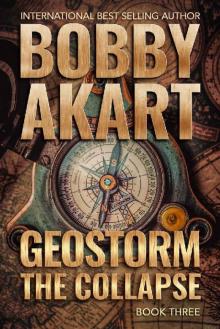 Geostorm The Collapse: A Post Apocalyptic EMP Survival Thriller (The Geostorm Series Book 3)
Geostorm The Collapse: A Post Apocalyptic EMP Survival Thriller (The Geostorm Series Book 3)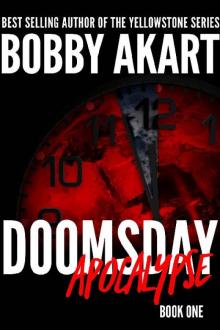 Doomsday Apocalypse
Doomsday Apocalypse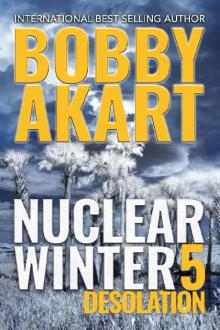 Nuclear Winter Desolation: Post Apocalyptic Survival Thriller (Nuclear Winter Series Book 5)
Nuclear Winter Desolation: Post Apocalyptic Survival Thriller (Nuclear Winter Series Book 5)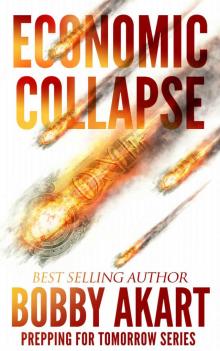 Economic Collapse (Prepping for Tomorrow Book 2)
Economic Collapse (Prepping for Tomorrow Book 2)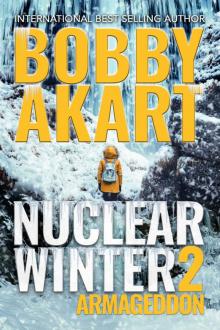 Nuclear Winter Armageddon
Nuclear Winter Armageddon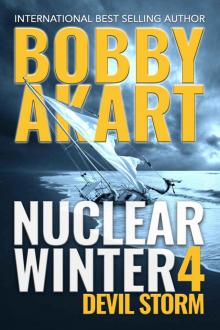 Nuclear Winter Devil Storm
Nuclear Winter Devil Storm Virus Hunters 3: A Medical Thriller
Virus Hunters 3: A Medical Thriller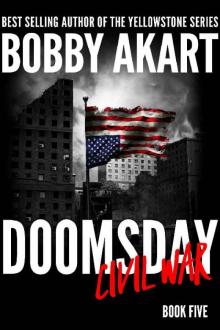 Doomsday Civil War: A Post-Apocalyptic Survival Thriller (The Doomsday Series Book 5)
Doomsday Civil War: A Post-Apocalyptic Survival Thriller (The Doomsday Series Book 5)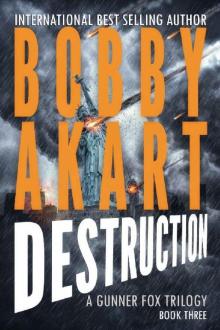 Asteroid Destruction
Asteroid Destruction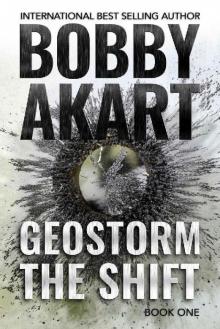 Geostorm the Shift
Geostorm the Shift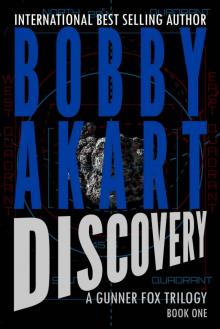 Asteroid Discovery
Asteroid Discovery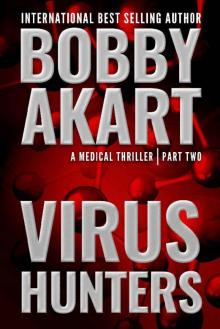 Virus Hunters 2: A Medical Thriller
Virus Hunters 2: A Medical Thriller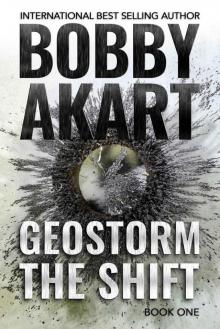 Geostorm The Shift: A Post-Apocalyptic EMP Survival Thriller (The Geostorm Series Book 1)
Geostorm The Shift: A Post-Apocalyptic EMP Survival Thriller (The Geostorm Series Book 1)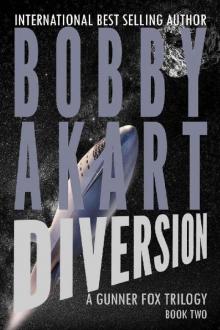 Asteroid Diversion
Asteroid Diversion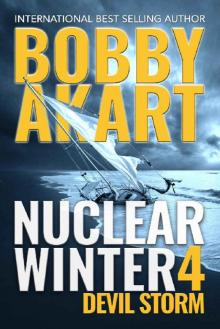 Nuclear Winter Devil Storm: Post Apocalyptic Survival Thriller (Nuclear Winter Series Book 4)
Nuclear Winter Devil Storm: Post Apocalyptic Survival Thriller (Nuclear Winter Series Book 4)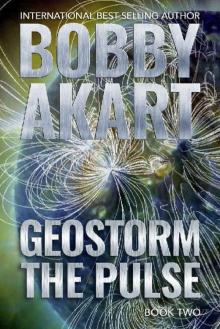 Geostorm The Pulse: A Post Apocalyptic EMP Survival Thriller (The Geostorm Series Book 2)
Geostorm The Pulse: A Post Apocalyptic EMP Survival Thriller (The Geostorm Series Book 2)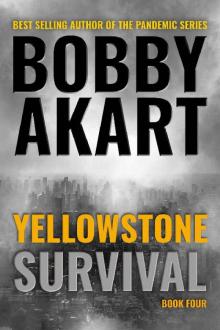 Yellowstone: Survival: A Post-Apocalyptic Survival Thriller (The Yellowstone Series Book 4)
Yellowstone: Survival: A Post-Apocalyptic Survival Thriller (The Yellowstone Series Book 4)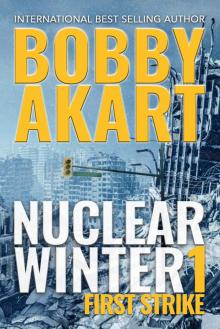 Nuclear Winter First Strike: Post-Apocalyptic Survival Thriller
Nuclear Winter First Strike: Post-Apocalyptic Survival Thriller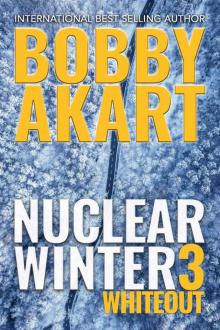 Nuclear Winter Whiteout
Nuclear Winter Whiteout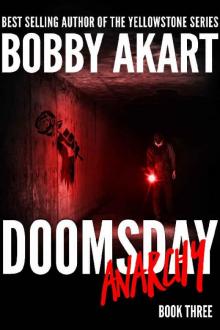 Doomsday Anarchy
Doomsday Anarchy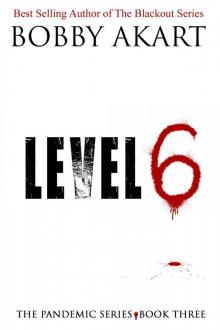 Pandemic: Level 6: A Post Apocalyptic Medical Thriller Fiction Series (The Pandemic Series Book 3)
Pandemic: Level 6: A Post Apocalyptic Medical Thriller Fiction Series (The Pandemic Series Book 3) Martial Law
Martial Law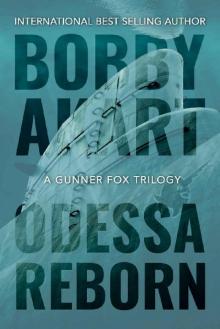 Odessa Reborn: A Terrorism Thriller (Gunner Fox Book 4)
Odessa Reborn: A Terrorism Thriller (Gunner Fox Book 4)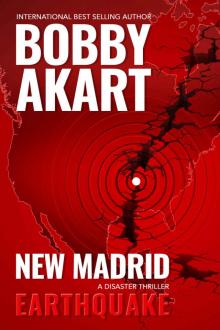 New Madrid Earthquake
New Madrid Earthquake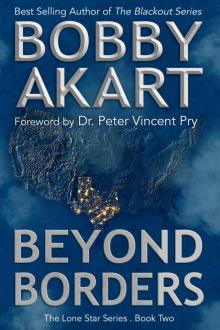 Beyond Borders: Post Apocalyptic EMP Survival Fiction (The Lone Star Series Book 2)
Beyond Borders: Post Apocalyptic EMP Survival Fiction (The Lone Star Series Book 2)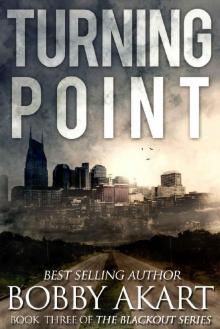 The Blackout Series (Book 3): Turning Point
The Blackout Series (Book 3): Turning Point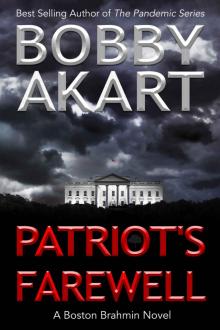 Patriot's Farewell: A Political Thriller Fiction Series (Boston Brahmin Political Thrillers Book 7)
Patriot's Farewell: A Political Thriller Fiction Series (Boston Brahmin Political Thrillers Book 7)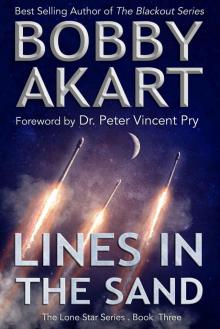 Lines in the Sand_Post Apocalyptic EMP Survival Fiction
Lines in the Sand_Post Apocalyptic EMP Survival Fiction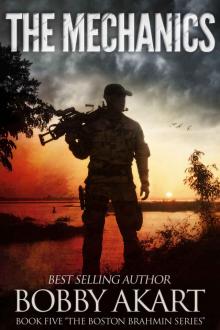 The Mechanics: A Post-Apocalyptic Fiction Series
The Mechanics: A Post-Apocalyptic Fiction Series The Loyal Nine
The Loyal Nine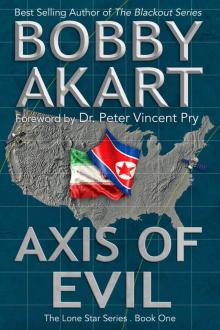 Axis of Evil
Axis of Evil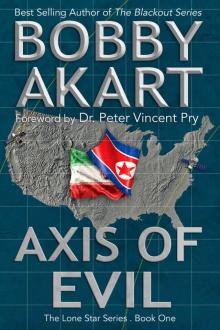 Axis of Evil: Post Apocalyptic EMP Survival Fiction (The Lone Star Series Book 1)
Axis of Evil: Post Apocalyptic EMP Survival Fiction (The Lone Star Series Book 1)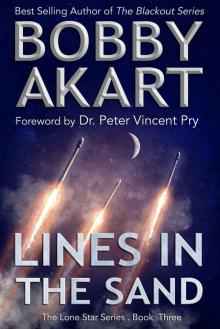 Lines in the Sand: Post Apocalyptic EMP Survival Fiction (The Lone Star Series Book 3)
Lines in the Sand: Post Apocalyptic EMP Survival Fiction (The Lone Star Series Book 3)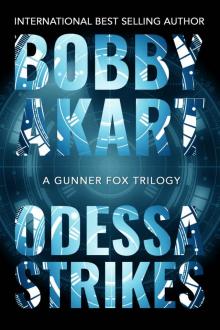 Odessa Strikes
Odessa Strikes The Blackout Series (Book 4): Shiloh Ranch
The Blackout Series (Book 4): Shiloh Ranch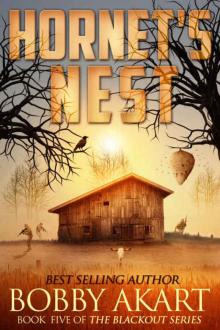 Hornet's Nest: A Post Apocalyptic EMP Survival Fiction Series (The Blackout Series Book 5)
Hornet's Nest: A Post Apocalyptic EMP Survival Fiction Series (The Blackout Series Book 5)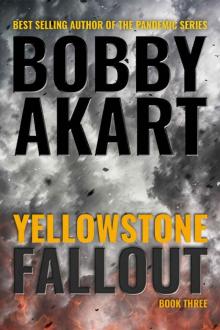 Yellowstone: Fallout: A Post-Apocalyptic Survival Thriller (The Yellowstone Series Book 3)
Yellowstone: Fallout: A Post-Apocalyptic Survival Thriller (The Yellowstone Series Book 3)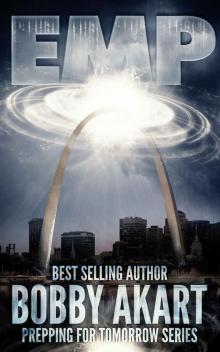 Electromagnetic Pulse
Electromagnetic Pulse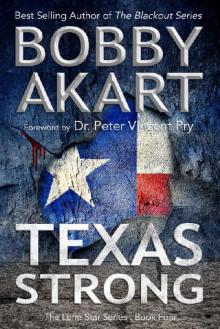 Texas Strong: Post Apocalyptic EMP Survival Fiction (The Lone Star Series Book 4)
Texas Strong: Post Apocalyptic EMP Survival Fiction (The Lone Star Series Book 4)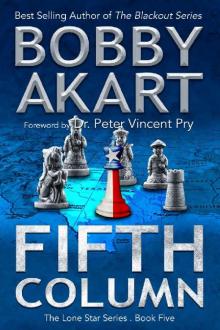 Fifth Column_Post Apocalyptic EMP Survival Fiction
Fifth Column_Post Apocalyptic EMP Survival Fiction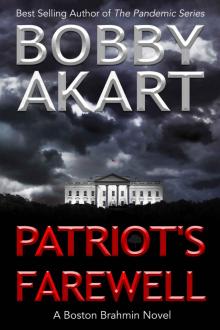 Patriot's Farewell
Patriot's Farewell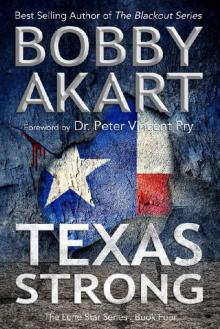 Texas Strong_Post Apocalyptic EMP Survival Fiction
Texas Strong_Post Apocalyptic EMP Survival Fiction Pandemic: The Innocents: A Post-Apocalyptic Medical Thriller Fiction Series (The Pandemic Series Book 2)
Pandemic: The Innocents: A Post-Apocalyptic Medical Thriller Fiction Series (The Pandemic Series Book 2) Shiloh Ranch: A Post Apocalyptic EMP Survival Fiction Series (The Blackout Series Book 4)
Shiloh Ranch: A Post Apocalyptic EMP Survival Fiction Series (The Blackout Series Book 4)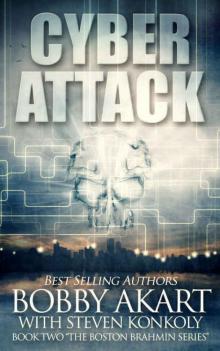 Cyber Attack
Cyber Attack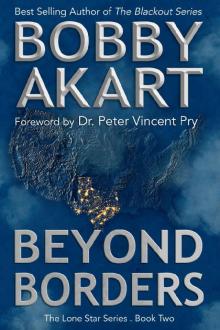 Beyond Borders
Beyond Borders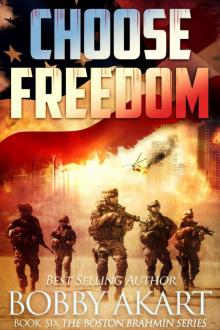 Choose Freedom: A Post-Apocalyptic Fiction Series (The Boston Brahmin Book 6)
Choose Freedom: A Post-Apocalyptic Fiction Series (The Boston Brahmin Book 6)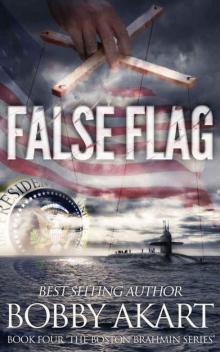 False Flag
False Flag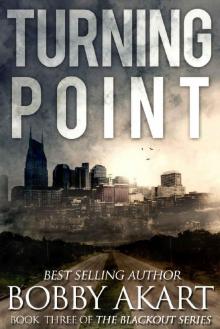 Turning Point: A Post Apocalyptic EMP Survival Fiction Series (The Blackout Series Book 3)
Turning Point: A Post Apocalyptic EMP Survival Fiction Series (The Blackout Series Book 3)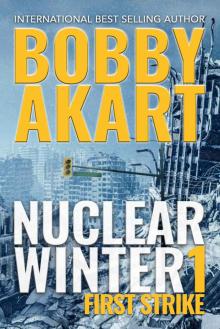 Nuclear Winter First Strike
Nuclear Winter First Strike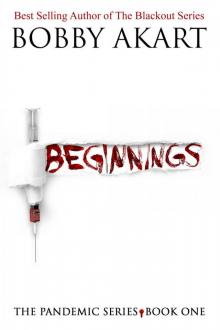 Pandemic: Beginnings: A Post-Apocalyptic Medical Thriller Fiction Series (The Pandemic Series Book 1)
Pandemic: Beginnings: A Post-Apocalyptic Medical Thriller Fiction Series (The Pandemic Series Book 1)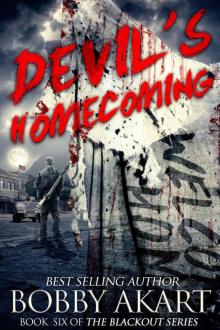 Devil's Homecoming: A Post Apocalyptic EMP Survival Fiction Series (The Blackout Series Book 6)
Devil's Homecoming: A Post Apocalyptic EMP Survival Fiction Series (The Blackout Series Book 6)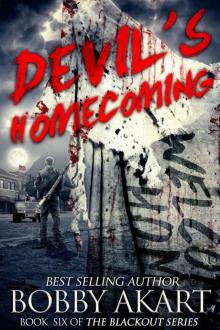 The Blackout Series (Book 6): Devil's Homecoming
The Blackout Series (Book 6): Devil's Homecoming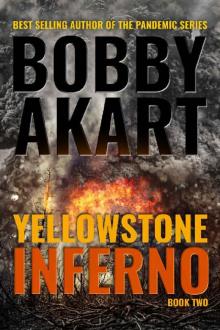 Yellowstone: Inferno: A Post-Apocalyptic Survival Thriller (The Yellowstone Series Book 2)
Yellowstone: Inferno: A Post-Apocalyptic Survival Thriller (The Yellowstone Series Book 2)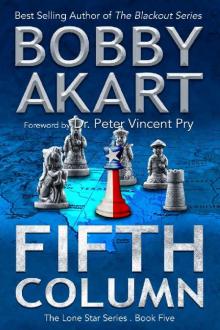 Fifth Column: Post Apocalyptic EMP Survival Fiction (The Lone Star Series Book 5)
Fifth Column: Post Apocalyptic EMP Survival Fiction (The Lone Star Series Book 5)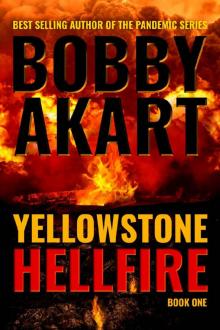 Yellowstone: Hellfire: A Post-Apocalyptic Survival Thriller (The Yellowstone Series Book 1)
Yellowstone: Hellfire: A Post-Apocalyptic Survival Thriller (The Yellowstone Series Book 1)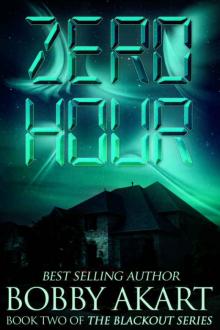 The Blackout Series (Book 2): Zero Hour
The Blackout Series (Book 2): Zero Hour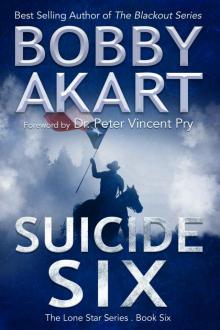 Suicide Six: Post Apocalyptic EMP Survival Fiction (The Lone Star Series Book 6)
Suicide Six: Post Apocalyptic EMP Survival Fiction (The Lone Star Series Book 6)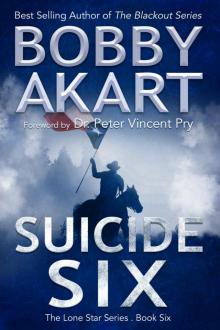 Suicide Six_Post Apocalyptic EMP Survival Fiction
Suicide Six_Post Apocalyptic EMP Survival Fiction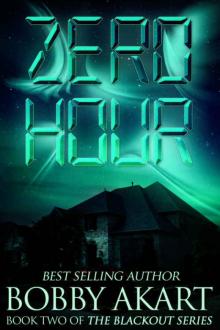 Zero Hour: A Post-Apocalyptic EMP Survival Fiction Series (The Blackout Series Book 2)
Zero Hour: A Post-Apocalyptic EMP Survival Fiction Series (The Blackout Series Book 2)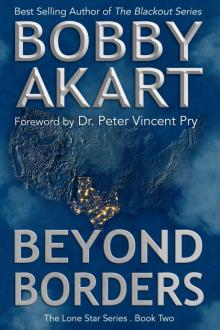 Beyond Borders_Post Apocalyptic EMP Survival Fiction
Beyond Borders_Post Apocalyptic EMP Survival Fiction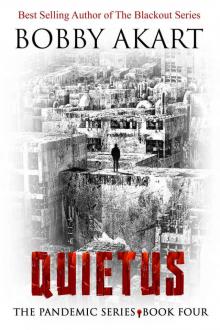 Pandemic: Quietus: A Post-Apocalyptic Dystopian Fiction Series (The Pandemic Series Book 4)
Pandemic: Quietus: A Post-Apocalyptic Dystopian Fiction Series (The Pandemic Series Book 4)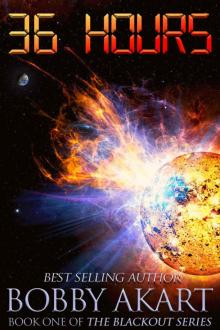 36 Hours: A Post-Apocalyptic EMP Survival Fiction Series
36 Hours: A Post-Apocalyptic EMP Survival Fiction Series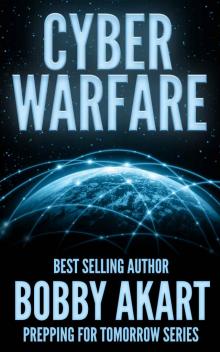 Cyber Warfare
Cyber Warfare